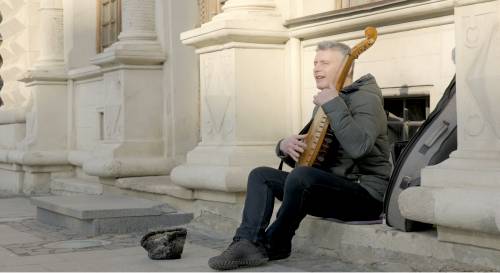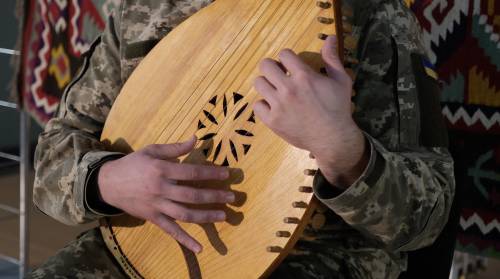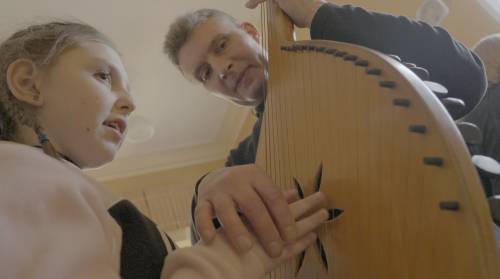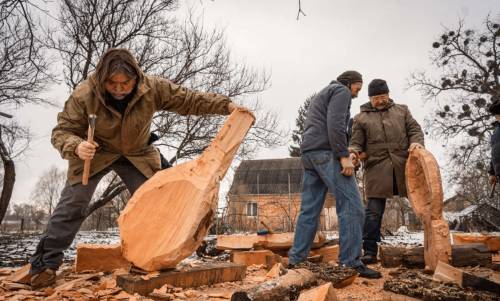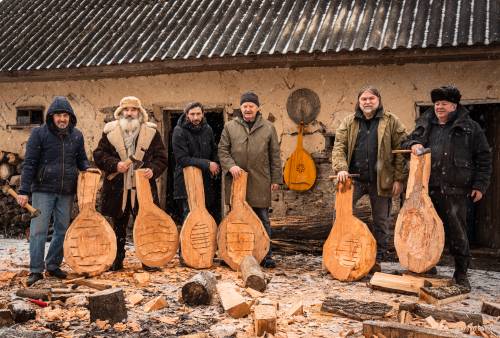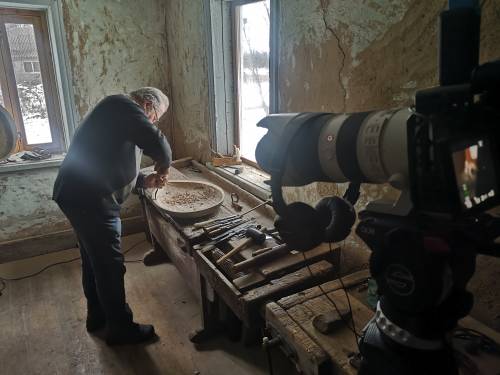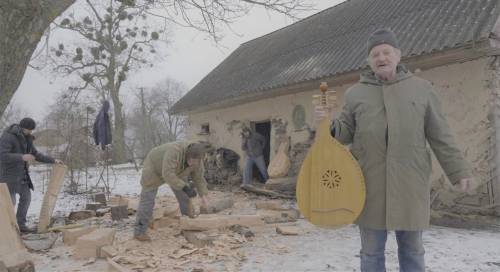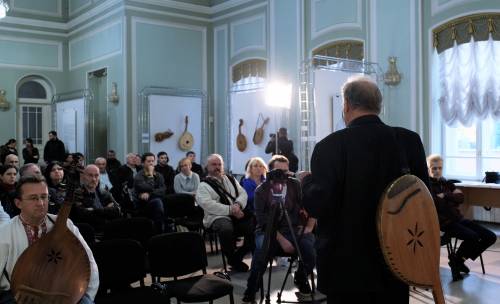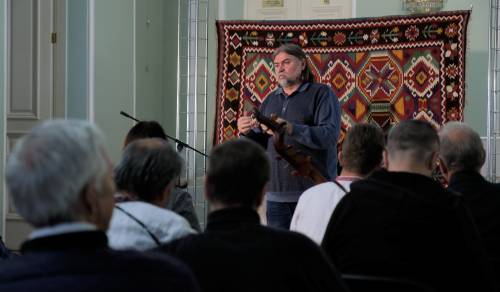Safeguarding programme of kobza and wheel lyre tradition
Selected in 2024 on the Register of Good Safeguarding Practices

The Ukrainian kobza and wheel lyre tradition is a nomadic music tradition involving visually impaired musicians who sing and play string instruments such as the kobza. Becoming a kobza performer traditionally entailed initiation rites conditioned by a strong knowledge of the music and of the practitioners’ secret language. To regulate their activities and protect their rights, the performers established guilds, or tsekhs. In the 1920s and 1930s, they faced many challenges and prosecution, but in the 1980s the remaining bearers reestablished the tsekh system to safeguard the tradition. Their aim was to transmit the related knowledge, skills and social norms through a long-term apprenticeship programme based on lectures, courses and practical classes. In keeping with tradition, the current tsekhs work with people with visual impairments. They carry out programmes with practitioners and build partnerships with museums and research institutions. The tsekhs, which are financed through crowdfunding and donations, promote the practice and increase the visibility of the kobza and wheel lyre traditions through participation in various events, including media conferences, festivals, performances and meetings with youth.
